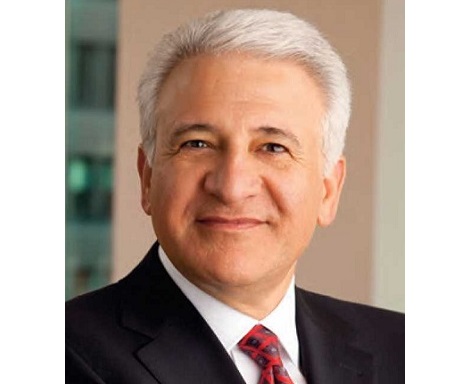Despite 2019 being a highly active year for Japanese typhoons, AXIS Capital’s decision to take advantage of improved market conditions and expand in the region remains the right call, according to the Bermudian re/insurer’s Chief Executive Officer (CEO), Albert Benchimol.
 The insurer and reinsurer revealed in its second-quarter 2019 earnings call that overall premium growth was primarily a reflection of the company’s expansion in Japan, which was driven by a desire to capture improved rates as a result of the impacts of typhoons Jebi and Trami in 2018.
The insurer and reinsurer revealed in its second-quarter 2019 earnings call that overall premium growth was primarily a reflection of the company’s expansion in Japan, which was driven by a desire to capture improved rates as a result of the impacts of typhoons Jebi and Trami in 2018.
Speaking during the company’s Q3 2019 earnings call, Benchimol reiterated the firm’s expanded footprint in the region, describing it as somewhat of a “rare opportunity” that aligned with its long-term strategy as AXIS sees Japan as one of the most attractive reinsurance markets in the world.
“In addition, increasing our Japanese exposure brought more capital efficiency and further diversification to our overall cat portfolio,” said Benchimol.
Unfortunately for AXIS, and a range of other re/insurers that expanded their presence in Japan in light of improving market conditions, 2019 has proved to be another active year for Japanese typhoons, highlighted by the devastating and costly impacts of typhoon Faxai and the more recent typhoon Hagibis. But despite this, the AXIS CEO explained that the firm remains committed to the space and suggests that the firm does not regret expanding in the region.
“However, we continue to believe that from a longer-term perspective, growing in Japan is the right call, and we’re confident that we will receive appropriate returns for our commitments to the Japanese market,” he said.
A disappointing third-quarter for AXIS included catastrophe losses, net of reinsurance and reinstatement premiums of $160 million, mostly driven by the impacts of Hurricane Dorian, the Japan typhoons, and other weather-related events in the period.
Benchimol explained during the earnings call that the firm had a couple of Japanese aggregate treaties that were exhausted by Faxai, meaning that this will not be impacting its fourth-quarter result. However, typhoon Hagibis, which is currently estimated to have driven a re/insurance industry loss of up to $16 billion, will have an impact on AXIS Capital’s Q4 result, although at this time the company isn’t sure how much this will be.
“We expect, given what we’ve talked with our cedents, it will be something that’s probably larger than Faxai but lower than Jebi…The only thing I could really tell you is that we know we did increase our market share with regard to Japan, so we will see higher losses from that market than what we saw with Jebi,” said Benchimol.
Before 2018, Typhoon Mireille from 1991 was considered the most costly Japanese typhoon for the industry, with some estimating it cost up to $9 billion, although the local insurance association pegged the impact to Japanese insurers at just under $6 billion.
2018’s typhoon Trami may sit just under that typhoon in the loss league table, with 2019’s Faxai above it, then 2018’s typhoon Jebi higher than Mirielle and competing for first place with Hagibis.
That means that four of the top five Japanese typhoon re/insurance industry loss events appear to have occurred in just the last two seasons.


